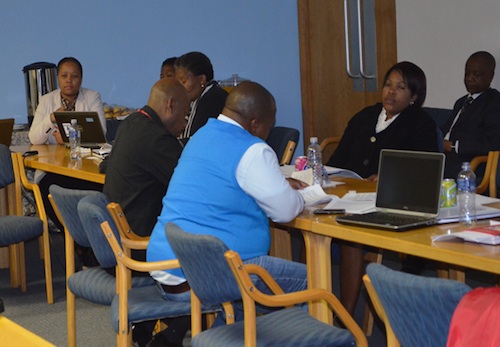
Delivered by Dr Anders Nordström, WHO Representative in Sierra Leone.
Today, 7 November 2015, the World Health Organization declares the end of the Ebola outbreak in Sierra Leone.
Since Sierra Leone recorded the first Ebola case on 24 May 2014, a total number of 8,704 people were infected and 3,589 have died. From those who tragically lost their lives, 221 of them were healthcare workers. We remember them all today.
We are now moving into a new phase of 90 days enhanced surveillance which will run until 5 February 2016. This new phase is critical as our goal is to ensure a resilient zero and that we can detect and respond to any potential Ebola flare ups. This period is about ensuring that we can consolidate the gains of existing systems to manage future risks.
The World Health Organization commends the Government of Sierra Leone and the people of Sierra Leone for the significant achievement of ending this Ebola outbreak.
The world had never faced an Ebola outbreak of this scale and magnitude and the world has neither seen a nation mobilizing its people and resources as Sierra Leone did. The power of the people of Sierra Leone is the reason why we could put an end to this outbreak today.
This power of the people and the foundation now in place needs to be further nurtured and supported in order to build a strong and resilient public health system which stands ready to contain the next outbreak of a disease, Ebola or any other public health threat.
Under the leadership of the Sierra Leonean Government, an effective response was initiated to manage the outbreak. The use of rapid response teams and strong community involvement to identify new cases early and quickly stop any Ebola virus transmission should continue to be the cornerstone of the national response strategy.
WHO will maintain an enhanced staff presence in Sierra Leone as the response transitions from outbreak control, to support enhanced vigilance and to the recovery of essential health services.
The Ebola outbreak has decimated families, the health system, the economy and social structures. All need to recover and heal.
WHO is confident that the Government of Sierra Leone together with its national and international partners will use the foundation already in place; dedicated and trained health workers; systems for alerts and information management; community engagement and care for people – to deal with other priority health problems, child mortality topping the list.
Thank you
___________________________________
For Media Enquiries:
Ebba Kalondo
Communications Officer, WHO
Telephone: +23276533284
Email: kalondoe [at] who.int (kalondoe[at]who[dot]int)
Dr Margaret Harris
Media, Ebola
Telephone: +41 227911646 (o)
Mobile: +41 796 036 224 (m)
Email: harrism [at] who.int (harrism[at]who[dot]int)


